7 Myths About Linux You Should Stop Believing
Linux distributions are powerful, reliable, and easy to use, but there are so many misconceptions about Linux on the Internet.
The internet is filled with myths (or untrue claims) about almost everything, and there are always people ready to spread these misconceptions. If you regularly read about Linux in some online forums, you've probably come across some well-known Linux myths.
Here are some myths about Linux that are spreading like wildfire across the internet.
1. Linux is for developers and coders only
The history of Linux has always been closely associated with programmers, and even today, most people who contribute to the project are software developers. This is why most regular desktop users think Linux is reserved for computer users with a technical background.
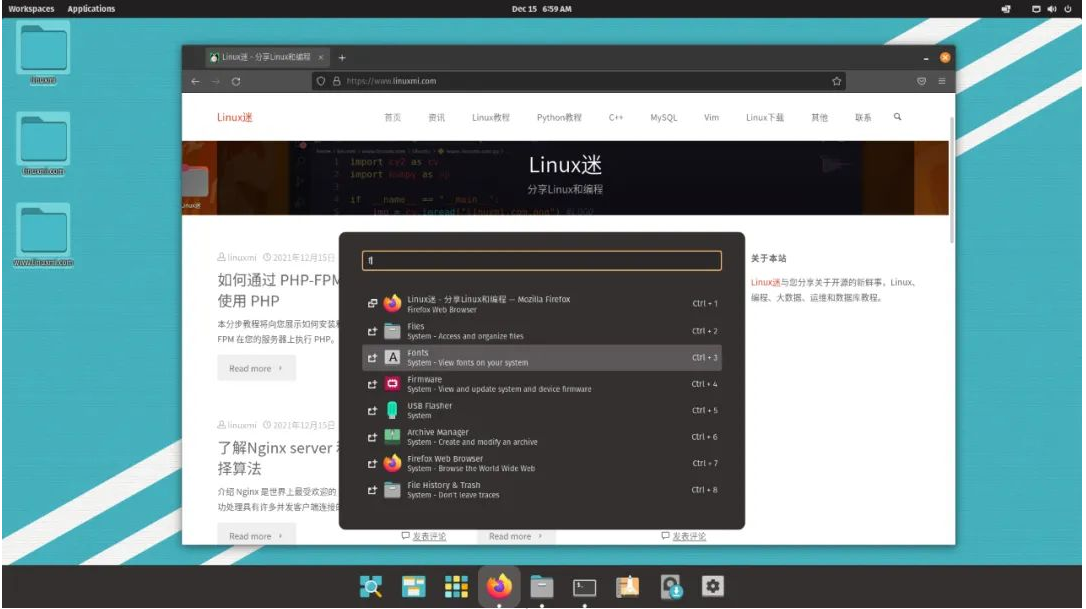
In fact, most of the standard utilities and packages that come pre-installed on Linux distributions are related to software development, but now almost every distribution is starting to add them for the public who are not interested in writing code at all app.
Most people don’t realize that Linux has become an integral part of their daily lives. Anyone browsing a website on the Internet, or using an Android smartphone, is using Linux, in the form of a web server and an operating system customized for handheld devices.
Indirect Linux usage aside, you can even install a beginner-friendly Linux distribution on your computer if you want. You don't need to be a programmer or a tech geek to learn how to use it. What is required is a strong willingness to learn and perseverance.
Related: The 10 Best Linux Distros for Beginners in 2022 https://www.linuxmi.com/2022-10-top-linux.html
2. You must master the command line to use Linux
The command line or terminal is inherent in Linux distributions and has been the case since the beginning. When Linus began developing Linux, computers were not powerful enough to support a graphical user interface, and the command line was essential for anyone who wanted to interact with the system.
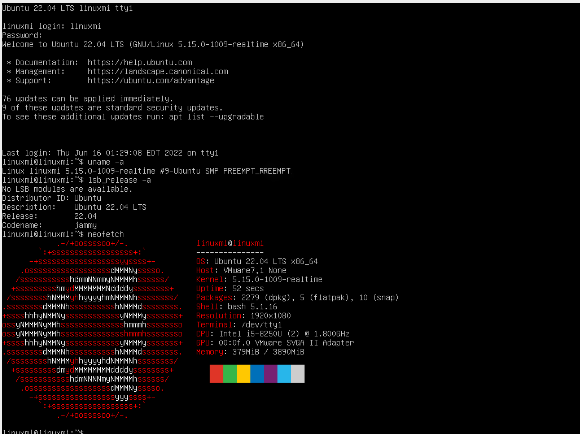
Fast forward to now, and the term "desktop" referring to a GUI is often used as a replacement for "computer," and the two terms combined have completely different meanings. Beyond the underlying desktop environment, machines can now run resource-intensive games without much use of the command line for the average user.
If you want, you can get away with it without using a terminal or, on Linux distributions, typing commands at all. Sometimes you may need to troubleshoot a problem, and it may require you to enter commands in a shell, but don't worry, most help is available online. All you need to do is copy and paste the command into your terminal and you are good to go.
Related: Why the command line is so important in the Linux ecosystem https://www.linuxmi.com/linux-command-line-important.html
3. Linux is not suitable for games
Even today, gaming is a well-known application area that Linux should lack. But that is no longer the case. Linux distributions are making headway when it comes to gaming, and you can now think of Linux as an operating system for gamers.
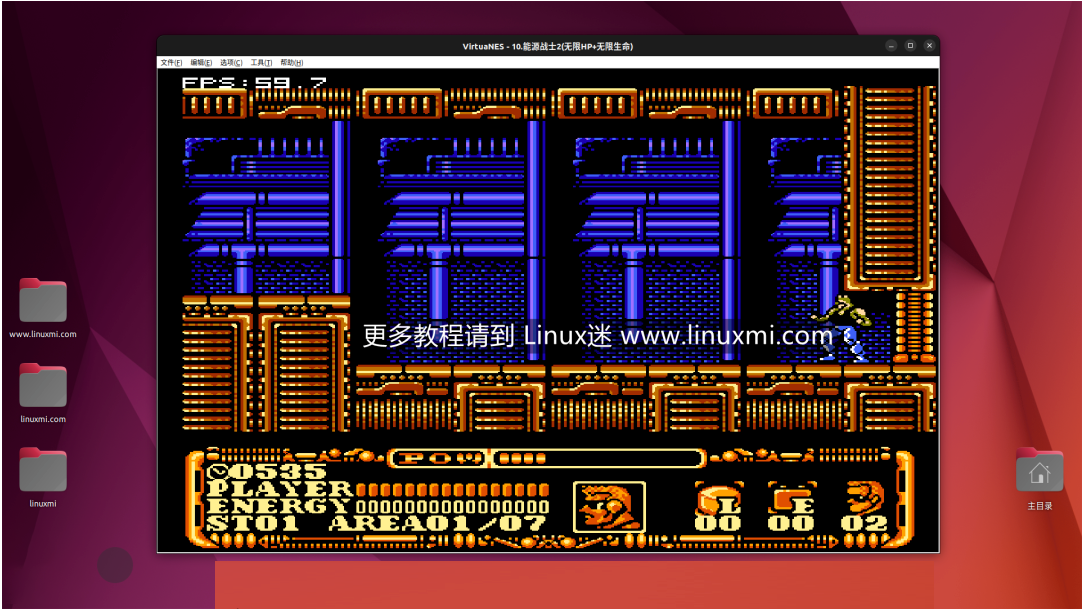
It’s no secret that native Linux games like CS:GO perform better on Linux than on other operating systems, including Windows. It's clear that if game developers started developing natively for Linux, Linux might actually have a chance to surpass Windows in terms of performance.
However, this is not the case yet. Multiplayer support for many games still doesn't work on Linux because the Linux architecture doesn't allow kernel-level access to anti-cheat software. But that may soon change, considering how far gaming on Linux has come.
Related: Wine 7.8 implements driver enhancements to play more Windows games on Linux https://www.linuxmi.com/wine-7-8.html
4. It’s hard to find applications for Linux
Windows users enjoy native support for advanced applications such as Adobe Photoshop, Microsoft Office, and more.
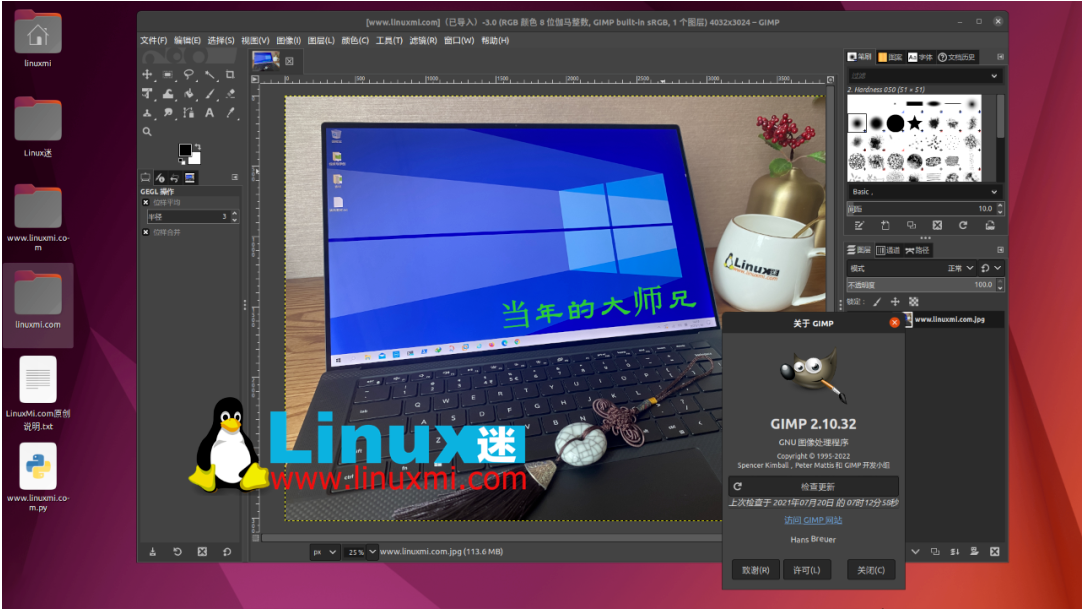
On the other hand, such proprietary software companies do not provide software support for Linux-based operating systems. This leads many users to think that Linux does not have many applications, and if they switch to Linux, they may miss some golden programs. However, this is completely untrue.
Linux has at least the same number of applications as Windows (if not more). They may not be as prestigious or well-known among the public, but they get the job done. To name a few, Linux uses GIMP as an alternative to Adobe Photoshop and the LibreOffice suite as an alternative to Microsoft Office.
Related:
- GIMP 2.10.32 released https://www.linuxmi.com/gimp-2-10-32.html
- LibreOffice 7.3.5 office suite released https://www.linuxmi.com/libreoffice-7-3-5.html
5. Linux will not be infected by viruses
"If you use Linux, you can't get viruses or malware." This myth about Linux has been around the Internet since time immemorial. However, the persistence of this statement does not mean it is accurate.
It is entirely possible to infect a Linux system. But the fact is that Linux represents only a small portion of the desktop operating system market, which means attackers are less likely to develop malware for Linux because the profit margins are slim. In fact, you don’t even need to use antivirus software or a firewall on your desktop Linux system.
This is because most Linux antivirus software usually checks for Windows-related malware so that you don't share infected files with other systems. Plus, because of the way permissions work on Linux, it's much more secure than other operating systems.
Related: 6 Reasons Why Linux Don’t Need Antivirus Software or Firewall https://www.linuxmi.com/linux-not-use-anti-virus-software-or-firewall.html
6. Linux is only used on the server
Many long-time Windows users are under the impression that Linux is only for servers, and if it were a desktop operating system it would be as prominent as Windows or macOS. Although Linux was originally created by Linus Torvalds as a desktop operating system, it is more dominant in the server world due to its underlying architecture.
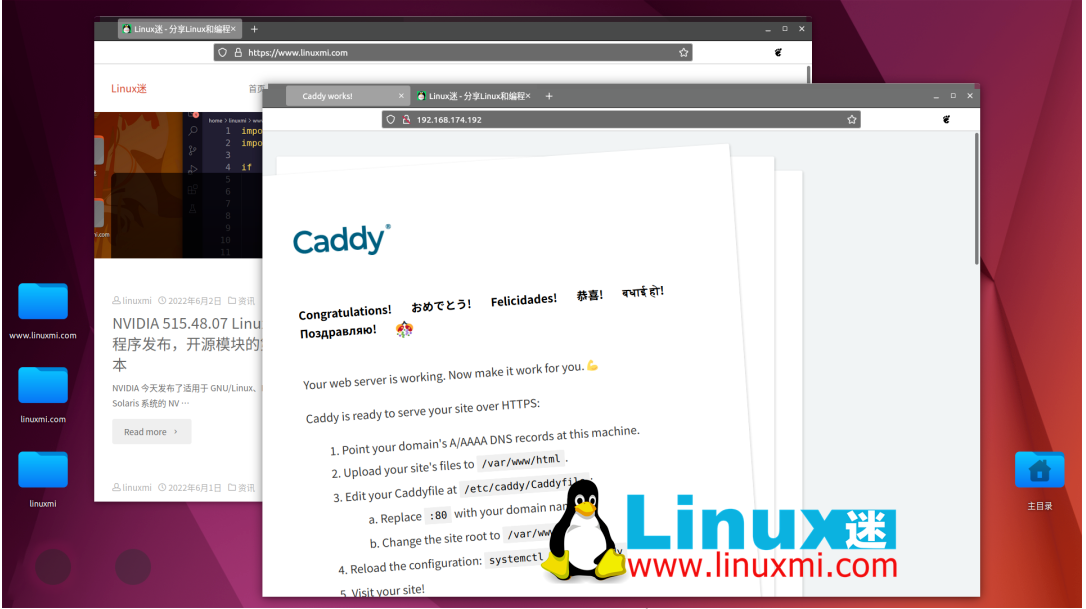
In addition to running on servers, Linux powers desktop computers, smartphones, embedded devices and even supercomputers. There's a good chance that most of the smart appliances you use in your home use Linux in the background.
7. Linux is too fragmented
There are thousands of Linux distributions available, each with a different set of software, user interface, and unique way of managing packages. All of this might lead you to think that the Linux world is fragmented, or at least unmanaged.
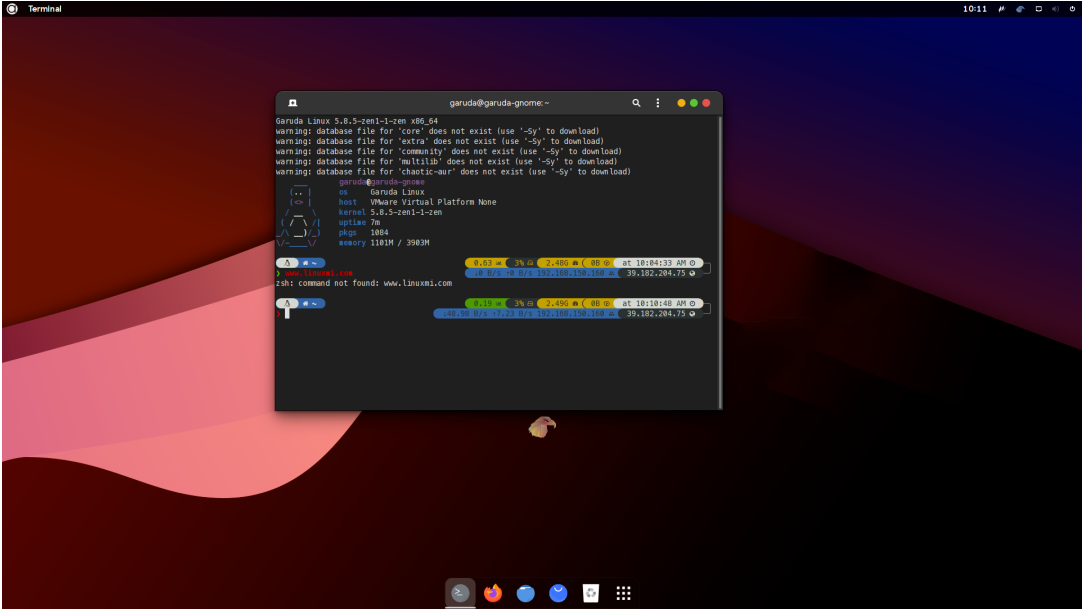
But this apparent weakness is actually the strength of Linux. The availability of many different options gives you options. You can choose the operating system you want to use, install a desktop environment that works for you, and use a package manager that's easier to learn. These choices are usually already made for you on other operating systems, such as Windows or macOS.
That's not all. Linux may look fragmented to you, but only from a distance. If you learn more about operating systems, you'll find that there are more similarities than differences between the different distributions.
There are only a few parent release series from which other releases can be created. Each of these Linux distribution families has its own unique package manager, which means that choosing a package manager that suits your needs will filter out almost 80% of the available distributions.
However, there are packaging systems such as Snap and Flatpak, which are distribution-agnostic and can run on any Linux-based operating system, provided you have the right software.
Related: Tutorial on installing Flatpak in Linux system https://www.linuxmi.com/linux-flatpak.html
To better debunk Linux myths
Linux myths have been circulating on the Internet for a long time. Many of these misconceptions keep people away from trying Linux-based operating systems on their computers. Therefore, it is important to do a better job of busting these myths.
Now that you know these misconceptions, if you eventually want to try Linux, there are two distributions to start with: Ubuntu and Manjaro Linux. But which one is right for Linux beginners, and which one should you choose for your desktop?
The above is the detailed content of 7 Myths About Linux You Should Stop Believing. For more information, please follow other related articles on the PHP Chinese website!

Hot AI Tools

Undresser.AI Undress
AI-powered app for creating realistic nude photos

AI Clothes Remover
Online AI tool for removing clothes from photos.

Undress AI Tool
Undress images for free

Clothoff.io
AI clothes remover

Video Face Swap
Swap faces in any video effortlessly with our completely free AI face swap tool!

Hot Article

Hot Tools

Notepad++7.3.1
Easy-to-use and free code editor

SublimeText3 Chinese version
Chinese version, very easy to use

Zend Studio 13.0.1
Powerful PHP integrated development environment

Dreamweaver CS6
Visual web development tools

SublimeText3 Mac version
God-level code editing software (SublimeText3)

Hot Topics
 1387
1387
 52
52
 How to use docker desktop
Apr 15, 2025 am 11:45 AM
How to use docker desktop
Apr 15, 2025 am 11:45 AM
How to use Docker Desktop? Docker Desktop is a tool for running Docker containers on local machines. The steps to use include: 1. Install Docker Desktop; 2. Start Docker Desktop; 3. Create Docker image (using Dockerfile); 4. Build Docker image (using docker build); 5. Run Docker container (using docker run).
 How to view the docker process
Apr 15, 2025 am 11:48 AM
How to view the docker process
Apr 15, 2025 am 11:48 AM
Docker process viewing method: 1. Docker CLI command: docker ps; 2. Systemd CLI command: systemctl status docker; 3. Docker Compose CLI command: docker-compose ps; 4. Process Explorer (Windows); 5. /proc directory (Linux).
 What to do if the docker image fails
Apr 15, 2025 am 11:21 AM
What to do if the docker image fails
Apr 15, 2025 am 11:21 AM
Troubleshooting steps for failed Docker image build: Check Dockerfile syntax and dependency version. Check if the build context contains the required source code and dependencies. View the build log for error details. Use the --target option to build a hierarchical phase to identify failure points. Make sure to use the latest version of Docker engine. Build the image with --t [image-name]:debug mode to debug the problem. Check disk space and make sure it is sufficient. Disable SELinux to prevent interference with the build process. Ask community platforms for help, provide Dockerfiles and build log descriptions for more specific suggestions.
 What computer configuration is required for vscode
Apr 15, 2025 pm 09:48 PM
What computer configuration is required for vscode
Apr 15, 2025 pm 09:48 PM
VS Code system requirements: Operating system: Windows 10 and above, macOS 10.12 and above, Linux distribution processor: minimum 1.6 GHz, recommended 2.0 GHz and above memory: minimum 512 MB, recommended 4 GB and above storage space: minimum 250 MB, recommended 1 GB and above other requirements: stable network connection, Xorg/Wayland (Linux)
 vscode cannot install extension
Apr 15, 2025 pm 07:18 PM
vscode cannot install extension
Apr 15, 2025 pm 07:18 PM
The reasons for the installation of VS Code extensions may be: network instability, insufficient permissions, system compatibility issues, VS Code version is too old, antivirus software or firewall interference. By checking network connections, permissions, log files, updating VS Code, disabling security software, and restarting VS Code or computers, you can gradually troubleshoot and resolve issues.
 Can vscode be used for mac
Apr 15, 2025 pm 07:36 PM
Can vscode be used for mac
Apr 15, 2025 pm 07:36 PM
VS Code is available on Mac. It has powerful extensions, Git integration, terminal and debugger, and also offers a wealth of setup options. However, for particularly large projects or highly professional development, VS Code may have performance or functional limitations.
 What is vscode What is vscode for?
Apr 15, 2025 pm 06:45 PM
What is vscode What is vscode for?
Apr 15, 2025 pm 06:45 PM
VS Code is the full name Visual Studio Code, which is a free and open source cross-platform code editor and development environment developed by Microsoft. It supports a wide range of programming languages and provides syntax highlighting, code automatic completion, code snippets and smart prompts to improve development efficiency. Through a rich extension ecosystem, users can add extensions to specific needs and languages, such as debuggers, code formatting tools, and Git integrations. VS Code also includes an intuitive debugger that helps quickly find and resolve bugs in your code.
 How to back up vscode settings and extensions
Apr 15, 2025 pm 05:18 PM
How to back up vscode settings and extensions
Apr 15, 2025 pm 05:18 PM
How to back up VS Code configurations and extensions? Manually backup the settings file: Copy the key JSON files (settings.json, keybindings.json, extensions.json) to a safe location. Take advantage of VS Code synchronization: enable synchronization with your GitHub account to automatically back up all relevant settings and extensions. Use third-party tools: Back up configurations with reliable tools and provide richer features such as version control and incremental backups.




